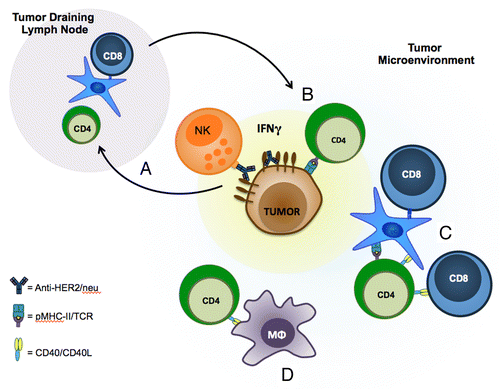Figures & data
Figure 1. CD4+ T cells and CD40/C40L interactions in the tumor microenvironment are necessary for the therapeutic efficacy of anti-HER2/Neu antibodies. (A) In addition to antibody-dependent cell-mediated cytotoxicity (ADCC), the binding of anti-HER2/Neu antibodies to HER2 promotes adaptive immune responses, resulting in increased tumor infiltration by CD4+ and CD8+ T cells. (B) CD4+ T cells are capable of mediating direct antitumor responses by engaging MHC class II molecules on the surface of cancer cells that has been induced by interferon γ (IFNγ). In line with this notion, the intratumoral depletion of CD4+ T cells inhibits the therapeutic efficacy of anti-HER2/Neu antibodies. (C and D) The intratumoral blockade of CD40/CD40L interactions also reduces the therapeutic potential of anti-HER2/Neu antibodies. CD40/CD40L interactions may promote antigen presentation by dendritic cells (DCs), activate CD8+ T cells (C) and/or promote macrophage activation (D).

